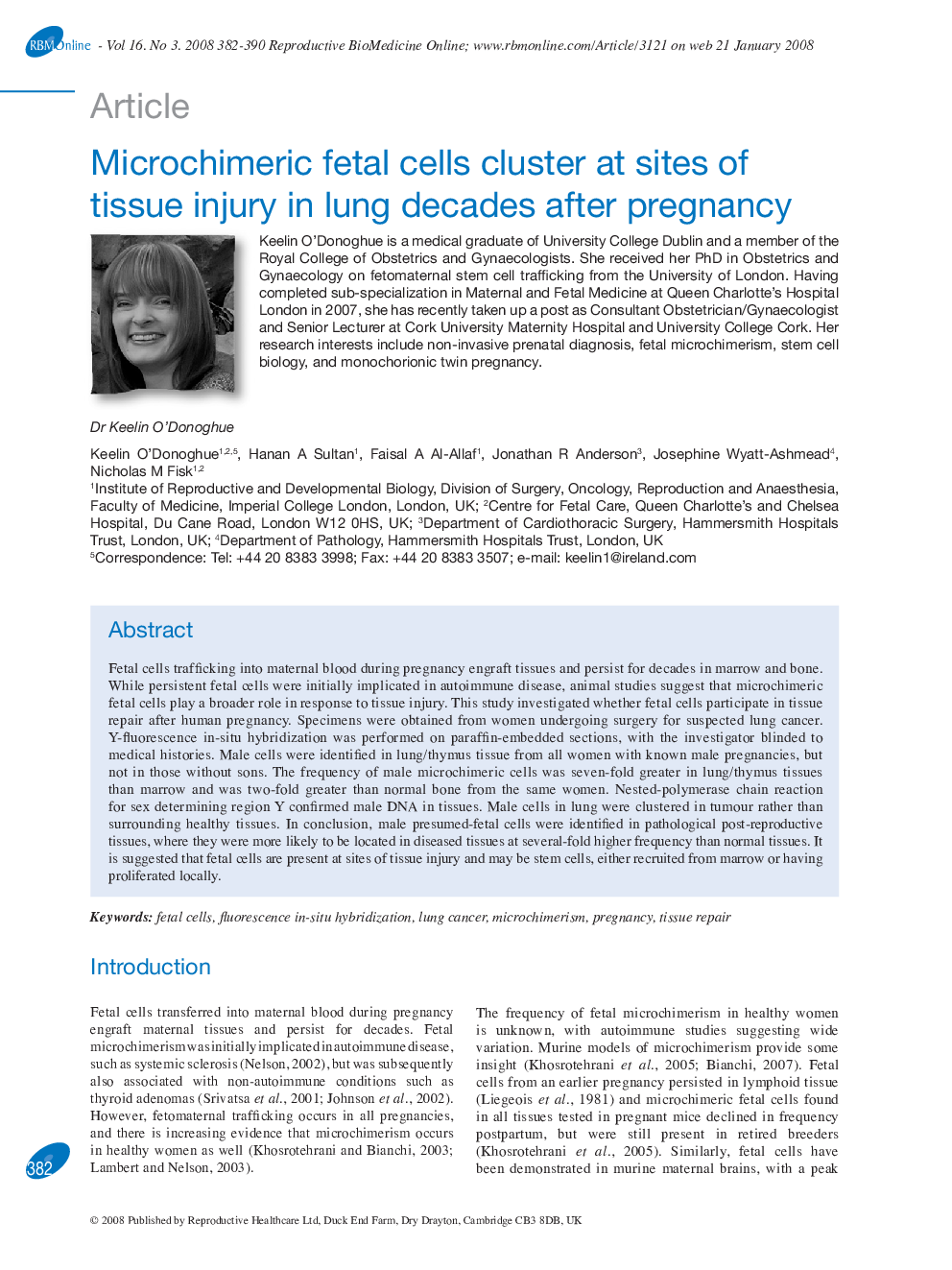| Article ID | Journal | Published Year | Pages | File Type |
|---|---|---|---|---|
| 3972755 | Reproductive BioMedicine Online | 2008 | 9 Pages |
Fetal cells trafficking into maternal blood during pregnancy engraft tissues and persist for decades in marrow and bone. While persistent fetal cells were initially implicated in autoimmune disease, animal studies suggest that microchimeric fetal cells play a broader role in response to tissue injury. This study investigated whether fetal cells participate in tissue repair after human pregnancy. Specimens were obtained from women undergoing surgery for suspected lung cancer. Y-fluorescence in-situ hybridization was performed on paraffin-embedded sections, with the investigator blinded to medical histories. Male cells were identified in lung/thymus tissue from all women with known male pregnancies, but not in those without sons. The frequency of male microchimeric cells was seven-fold greater in lung/thymus tissues than marrow and was two-fold greater than normal bone from the same women. Nested-polymerase chain reaction for sex determining region Y confirmed male DNA in tissues. Male cells in lung were clustered in tumour rather than surrounding healthy tissues. In conclusion, male presumed-fetal cells were identified in pathological post-reproductive tissues, where they were more likely to be located in diseased tissues at several-fold higher frequency than normal tissues. It is suggested that fetal cells are present at sites of tissue injury and may be stem cells, either recruited from marrow or having proliferated locally.
